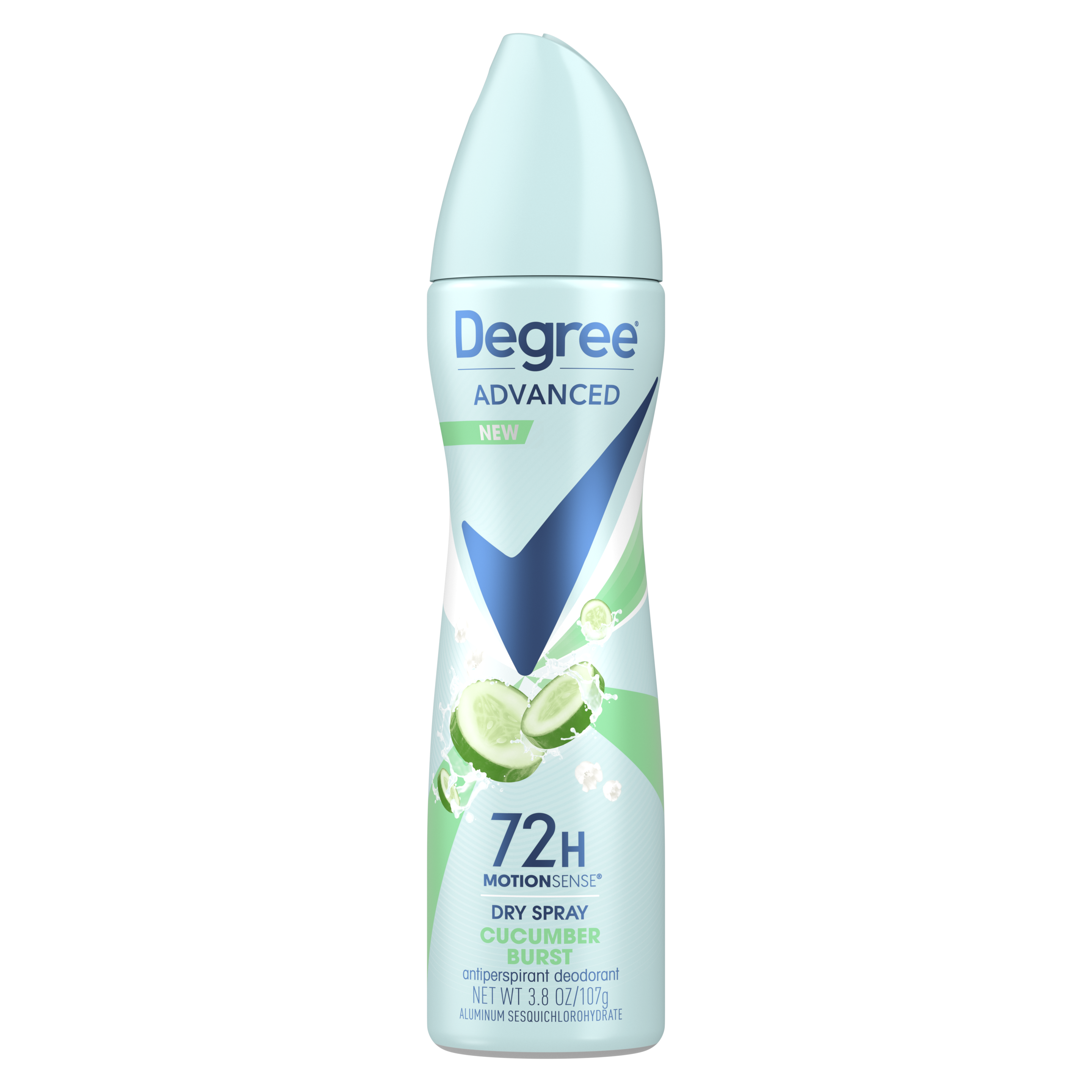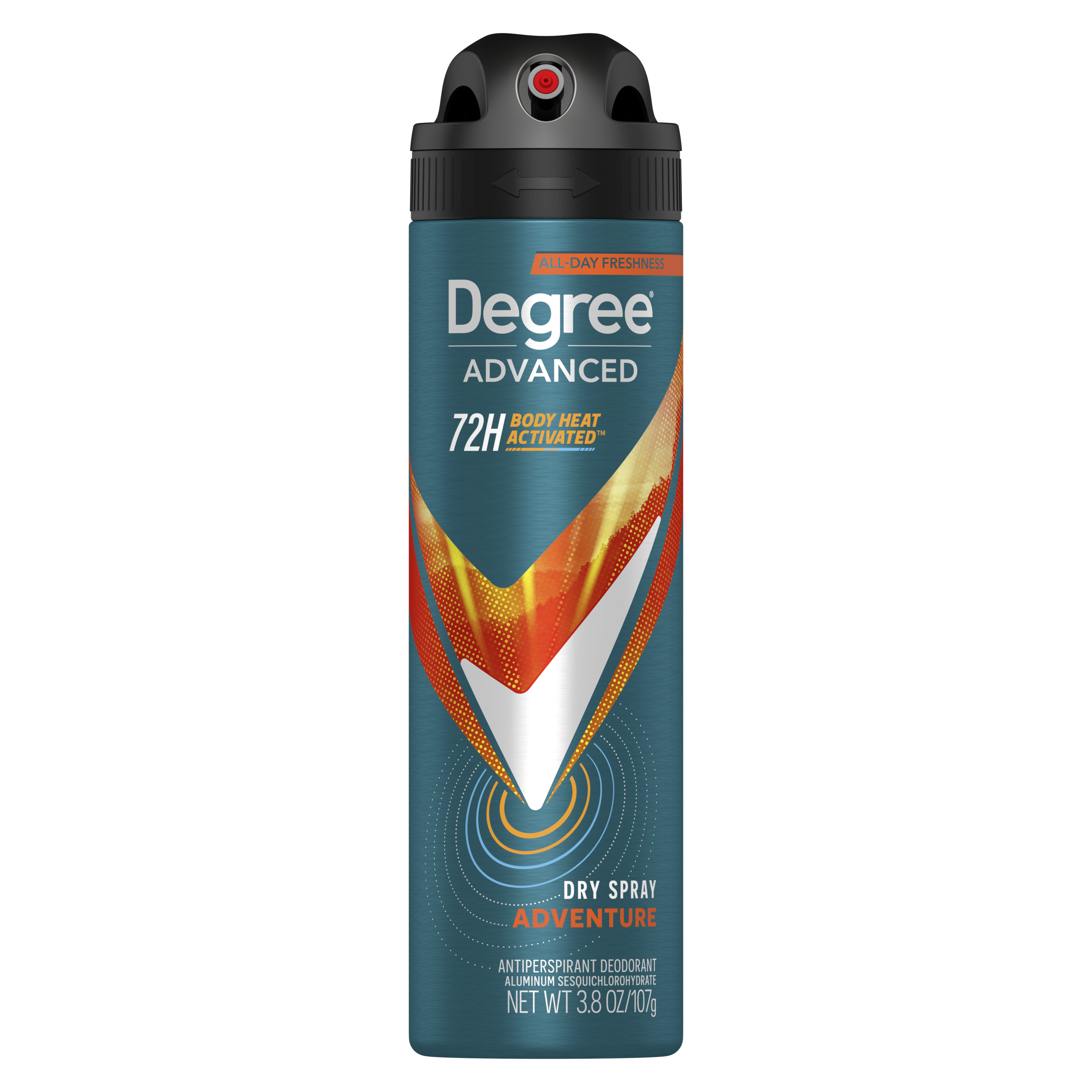Don’t Sweat It: A Confidence-Boosting Guide To Conquering Stress Sweat
Have you ever noticed sweat suddenly appearing in your underarms when stress hits? Don’t let it dampen your confidence! Those sneaky and not-so-welcome sweat patches can sneak up on you anytime.
In our de-stressing guide, we share the secrets to managing stress sweat, giving you six tips to stay effortlessly cool in the face of sweat.
Understanding stress sweat
Think all sweat is the same? Think again! There's the usual 'everyday sweat,' and then there's stress-induced sweat, each with its own distinct cause.
Our bodies sweat for various reasons—it's an essential function to regulate body temperature and prevent overheating. Sweating, in general, is good. However, it’s the specific type of sweat that can result in a more pungent odor and wet underarm patches.
How is regular sweat and B.O. produced?
Firstly, let's talk about sweat glands. There are two main types of sweat glands: eccrine and apocrine. Eccrine sweat glands are all over your body, producing that regular sweat when temperatures heat up or you're on the move.¹,²
Then, there are the apocrine sweat glands concentrated in spots like the feet, armpits, and groin. They secrete a heavier, fat-loaded sweat with a distinctive odor. When this sweat teams up with skin bacteria, bam, you've got stress body odor.¹,²
Battling body odors? Read our ultimate guide to smell fresh and confident.
Stress sweat
Stress sweat kicks in when stress hormones, like cortisol and adrenaline are triggered.¹ Think of it like this: when you're up against a challenging day or a nerve-wracking moment, your body goes into stress sweat mode. It's your body's way of dealing with life's intense moments.
Did you know your underarms can produce about 30 times more sweat when you’re under stress compared to when you're at rest?
Why does stress sweat smell different?
Stress sweat smells worse than sweat from heat or exercise because when we're stressed, apocrine gland releases a thick sweat full of proteins and lipids². This type of sweat is different from the usual watery and odorless sweat eccrine secrets that help cool our bodies.¹,²
Stress sweat odor
The nutrient-rich composition of stress sweat serves up a buffet for odor-causing bacteria. When these bacteria metabolize the proteins and lipids, they generate byproducts that contribute to a more pronounced and unpleasant odor, explaining why stress sweat tends to smell worse.¹,²
The challenge with underarm stress sweat is that it leaves you feeling clammy, less confident, less-than-fresh, and with visible stains on your clothes, causing more stress.
But it's time to break the cycle.
Curious about why your sweat smells? Discover the answers here.
COMMON CAUSES OF STRESS SWEAT
What may be considered stressful for one person may not be the cause of stress for another. We're all wired differently, so the specific situations triggering stress sweating can vary significantly based on individual personalities and experiences.
A simple rule of thumb applies: if a situation, or event causes your heart to beat faster or causing you to feel stressed (triggering adrenaline or cortisol), it may cause stress sweat to make its appearance.¹ For some people it may be conflict, for others it could be public speaking, moving to a new apartment or even chasing a tight deadline.
If you’re interested in learning more about different types of sweat, you should read our article about anxiety sweating, or medical conditions that could cause excessive sweating.

6 Tips for managing stress sweat
Can you treat stress sweat? Absolutely! Managing stress sweat is within reach. We’ve compiled the best ways to manage and reduce the impact of stress on perspiration.
1. Practice mindfulness
Take a moment to breathe and incorporate relaxation techniques like deep breathing. Deep breathing is reported to help lessen stress and anxiety³ which means less stress sweat.
Find a quiet place, close your eyes, inhale for a count of four, hold for four counts, and exhale slowly. Focus on your breath to promote calmness.
2. Self-care
Participating in activities like exercise, gratitude practice², connecting with loved ones, enjoying nature, and pursuing hobbies fosters happiness, lowers cortisol levels, and eases stress sweat.
3. Release your happy hormones
Staying active not only boosts feel-good endorphins⁴ but also serves as a distraction from daily worries. Exercise releases happy hormones which are proven to be a stress reliever. Whether it's running, swimming, walking, playing table tennis, or lifting weights, the choice is yours — just get moving. Aim for 30 minutes, five times a week⁵ to enhance your overall health and uplift your mood.
Read more about exercise sweat here.
4. Dress to sweat less
Dress smart. Stay away from synthetic fabrics. The exception is moisture-wicking polyester blends used in sports gear that keep you cool and dry.
Choose loose-fitting clothes in breathable, natural fabrics like cotton, silk or other natural fibers. These will keep you cool and help absorb sweat. Black or white clothes can also help minimize signs of sweat.⁶
Worried about stress sweat potentially ruining your wardrobe? Read our guide on effectively removing sweat stains. To proactively guard against both sweat stains and deodorant marks, consider giving the Degree UltraClear range a try.
5. Limit sweat triggers in your diet
Limiting certain foods can help control your stress, and stress sweating. Try to eat less foods that could trigger or raise cortisol levels like alcohol, caffeine, high-sugar foods and soda, and focus more on including nutrient rich, whole foods in your diet.⁷
Discover how our diet influences body odor. Explore this guide to find foods that can contribute to unpleasant smells.
6. Choose the right underarm protection
Deodorants and antiperspirants should be your first choice when managing stress sweat and staying fresh. Deodorants mask or neutralize body odor, while antiperspirants help to reduce sweat by blocking it at the source.
Reducing excessive sweat and odor creates an environment where the bacteria that makes you smell is less likely to hang around. It can also help to prevent skin irritation, especially on your underarms.
If regular deodorants just don’t cut it for you, try Degree’s Clinical Protection range, that offers prescription-strength wetness protection.
To tackle stress sweat, focus on managing your stress levels. Embrace positive lifestyle changes, practice stress-relief techniques, choose effective deodorant antiperspirants, and maintain a healthy diet.
If these steps fall short, consult a healthcare professional for personalized strategies or treatments.
References:
- Stress sweat stinks! Here's why & what to do about it. International hyperhydrosis society.
- Perciavalle V, Blandini M, Fecarotta P, Buscemi A, Di Corrado D, Bertolo L, Fichera F, Coco M. The role of deep breathing on stress. Neurol Sci. 2017.
- Chaudhry SR, Gossman W. Biochemistry, Endorphin. In: StatPearls [Internet]. Treasure Island (FL): StatPearls Publishing.Updated 2023.
- Physical activity for adults: An overview. CDC. 2023.
- Watson S. Stress and sweat: 10 tips to stay cool under fire. WebMD. 2024.



